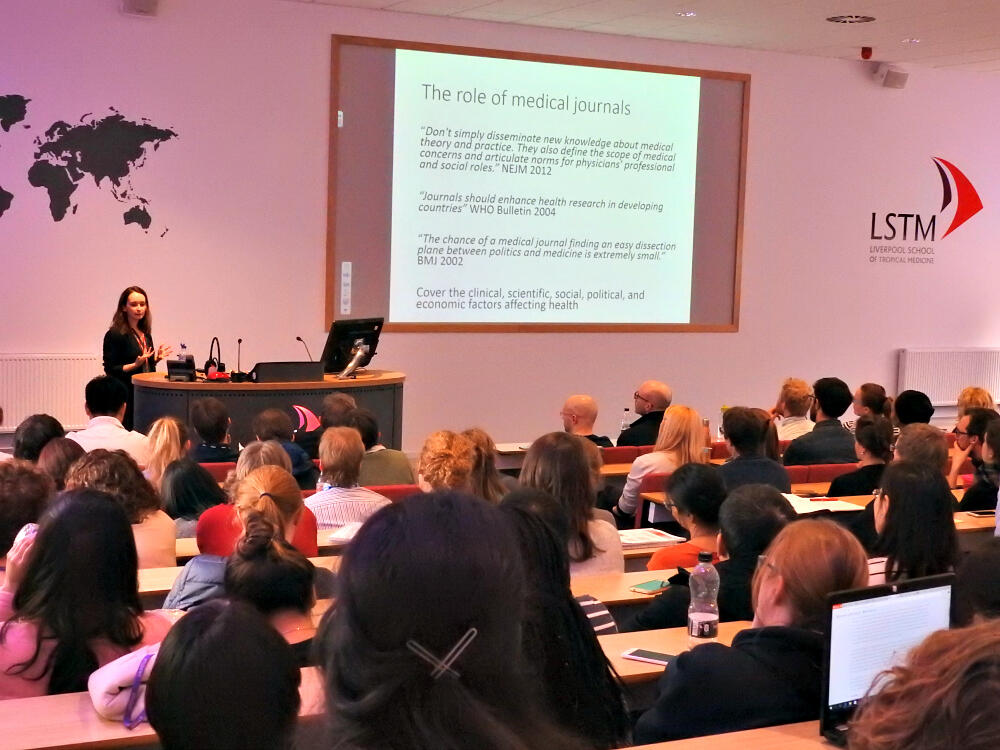
Dr Jocalyn Clark, Executive Editor of The Lancet continued LSTM’s seminar series with her talk entitled: Medical journals and the medicalisation of Global Health, and was introduced by LSTM’s Professor Paul Garner Co-ordinating Editor of the Cochrane Infectious Diseases Group.
Dr Clarke began by talking about her journey into journal editorship which began at the British Medical Journal, PLOS Medicine and now The Lancet. She talked about the role of medical journals to highlight quality research and combine that with critical opinion and commentary. All editors feel they have a responsibility to cover the clinical, strategic, political and economic factors affecting health. In order to carry out critical analysis there is a need for sociological imagination, a need to follow the money and power asking the questions where the comes from, what conditions it comes with, who decides and what are their interests, and who benefits from those decisions.
Looking at global health philanthropy and industrial relationships, she asked how we should address conflicts of interest on a larger scale as we frequently look at conflicts of interest but what about institutional conflicts of interest pointing to the paper she co-authored recently The black box warning on philanthrocapitalism.
She talked about her papers published during her time as a fellow of the Rockefeller Foundation’s Bellagio Centre for the project “the medicalization of global health.” She looked at the potential over medicalisation of the fields of mental health, non-communicable diseases and universal health coverage. By over medicalising these fields we are ignoring the social contexts in which those conditions arise and particularly in the terms of non-communicable diseases interventions focus on the individual and their behavioural changes are encouraged by governments and institution because it relieves them of their duty to encourage changes to policy on a population level.
To conclude, Dr Clark outlined some takeaway points which were centred on the medical journal’s role in the relation to the medicalisation of global health looking at holding to critical analysis the fact that global health problems require long term view rather than short term silver bullet approaches. Short term approaches deflect attention away from political contexts such as improving housing, schools and sanitation.
She pointed out that journals need critical thinking from their authors and that their role is not to just publish research of quality and integrity but to provide context, critique, commentary and to challenge and campaign.
A recording of the talk can be found here.